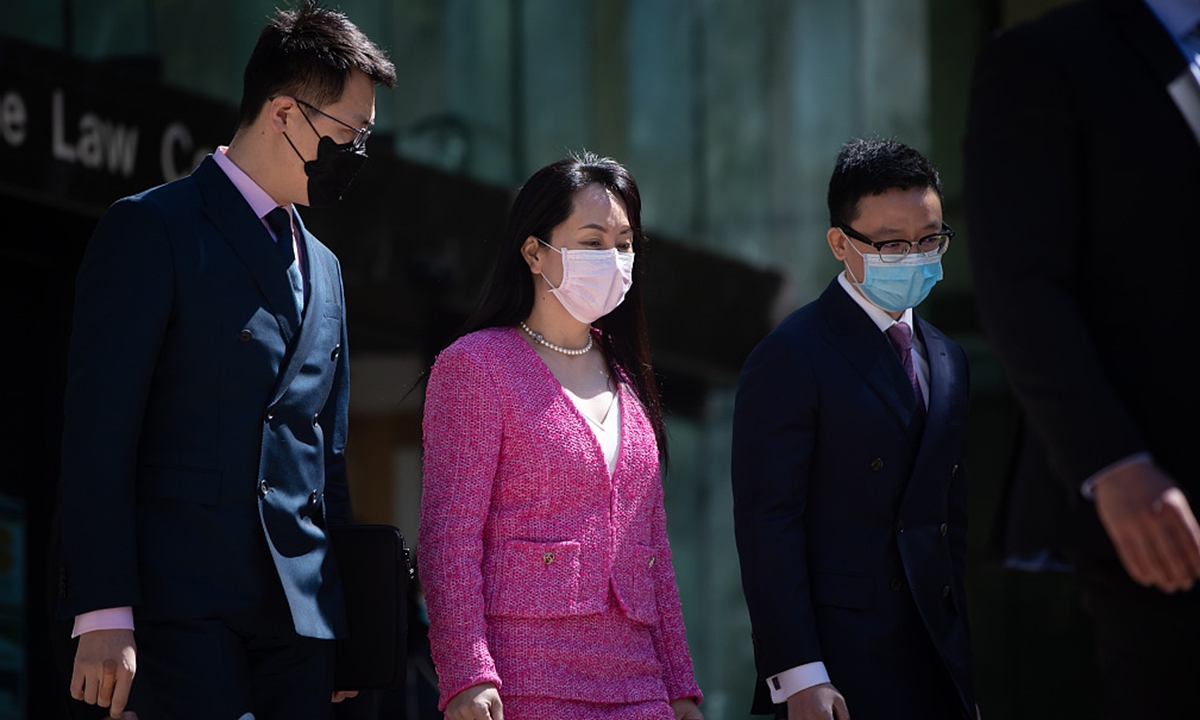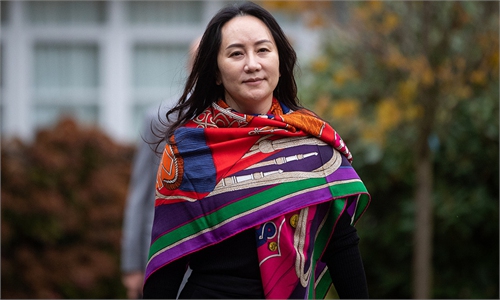Will extension of Huawei CFO Meng Wanzhou’s case become a turning point in marathon lawsuit?

Meng Wanzhou Photo:VCG
Following the latest decision by the Canadian court to delay the ongoing legal proceedings of Huawei's chief financial officer Meng Wanzhou until August to allow judges to review new documents obtained from HSBC, some legal experts and observers raised the question on Thursday about whether this signals "a big victory" in this marathon lawsuit and if it will become a major turning point in the legal fight against extradition to the US.
Reuters reported on Thursday that a Canadian judge has agreed to delay Meng's extradition hearings for three months, citing a ruling read in court on Wednesday, handing the Chinese senior executive's defense team "a win."
A source close to the matter confirmed with the Global Times on Thursday that the court agreed to delay the hearings until August 3, and the reasons for the extension will be read out on April 28 at a case management conference to talk about the upcoming schedule for the proceedings.
The result was also considered a hard-won one, according to people familiar with the matter, as the judge agreed to include more new evidence from HSBC, a major focus of the legal battle in deciding whether Meng had committed fraud in misleading the bank about the Chinese company's business dealings with Iran in leading the bank to violate US sanctions on Iran, a major argument the US put to the Canadian authorities in arresting her in December 2018.
The progress was made after Huawei and HSBC reached an agreement in a Hong Kong court recently over the relevant documents for legal proceedings in Meng's case.
US authorities have provided materials concerning a PowerPoint presentation Meng gave to HSBC in Hong Kong in August 2013, which is widely considered a key document in proving Meng lied about Huawei's relationship with Skycom - a major part of the US fraud allegations against her.
However, Meng's lawyers claim that the US deliberately omitted two slides from the PowerPoint, which showed that Meng did not mislead the bank, and their application for more internal documents from HSBC seeks to elaborate on this point.
"If the evidence shows that HSBC had known about the relationship between Huawei and SkyCom, then there is no fraud, the sole legal basis for the extradition request," Yue Dongxiao, a US-based lawyer who is closely observing the lawsuit, told the Global Times on Thursday.
However, some insiders who are familiar with the matter said it is still too early to call it a big win for Meng, as the judge needs to see what the new evidence is and how strongly it supports her arguments. Nonetheless, the latest decision "bought her defense team much more time" to prepare for the legal proceedings.
"If the new documents show that there was no fraud, or that Meng personally committed no fraud, or that misrepresentations or unwarranted allegations were made by HSBC or other third parties, then there is no evidence of criminality on Meng's part, and the judge would have to discharge her," Gary Botting, a Canadian legal expert and author of several books on extradition, told the Global Times on Thursday.
But the better alternative would be if the Assistant US Attorney (AUSA) responsible for her prosecution in New York recognizes that an error has been made and removes her name from the indictment, Botting further elaborated, noting that only then can she be free from the real fear that she could be extradited to the US from some other country down the road.
Meng's case has been widely considered a "political hot potato", dragging the China-Canada relationship to a freezing point over the past few years. The Chinese Foreign Ministry has repeatedly called the case a purely political maneuver, urging the release of Meng immediately.
In a phone call between US President Joe Biden and Canadian Prime Minister Justin Trudeau on Wednesday, the US president also "condemned the arbitrary detention of Michael Kovrig and Michael Spavor" and reiterated the commitment of the US to standing strong with Canada to secure their release, according to a readout on the White House website. Chinese authorities have stated the two Canadians who stood on trial in March were prosecuted for suspected crimes undermining China's national security. Their verdict is yet to be announced.
The Chinese Foreign Ministry previously reiterated that human beings must not be used as bargaining chips, and the US side should match its words with deeds and immediately release Meng, who has been arbitrarily detained for over 870 days.


